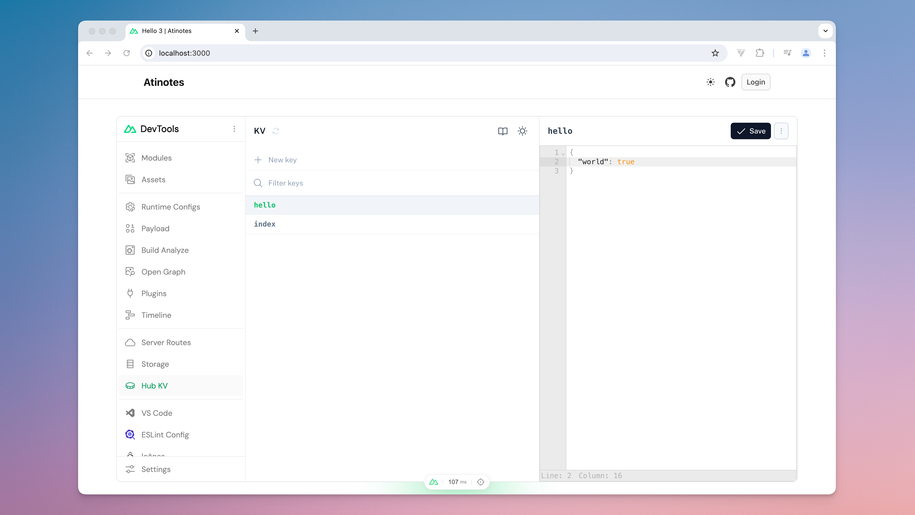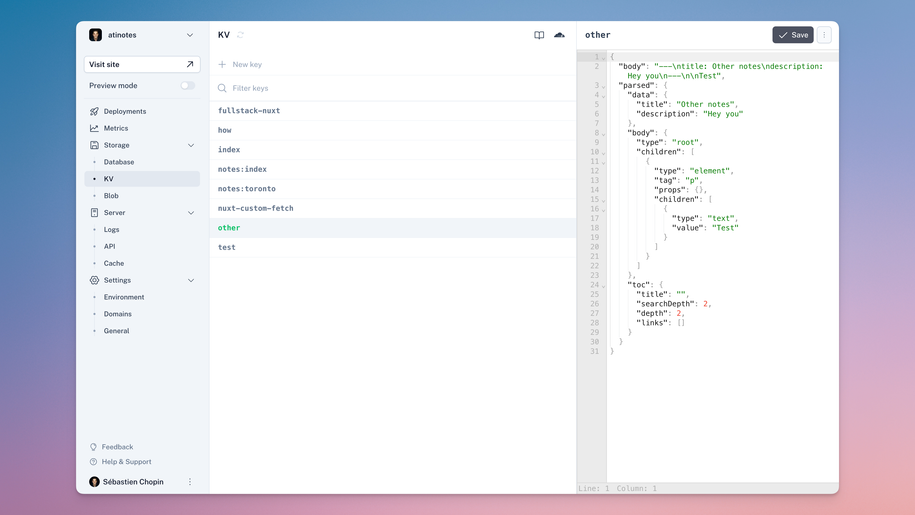Features
Key Value Storage
Add a global, low-latency key-value data storage to your Nuxt application.
Getting Started
Enable the key-value storage in your NuxtHub project by adding the kv property to the hub object in your nuxt.config.ts file.
nuxt.config.ts
export default defineNuxtConfig({
hub: {
kv: true
}
})
This option will use Cloudflare platform proxy in development and automatically create a Cloudflare Workers KV namespace for your project when you deploy it.

hubKV()
Server method that returns an unstorage instance with keys(), get(), set() and del() aliases.
keys()
Retrieves all keys from the KV storage (alias of getKeys()).
const keys = await hubKV().keys()
/*
[
'react',
'react:gatsby',
'react:next',
'vue',
'vue:nuxt',
'vue:quasar'
]
To get the keys starting with a specific prefix, you can pass the prefix as an argument.
const vueKeys = await hubKV().keys('vue')
/*
[
'vue:nuxt',
'vue:quasar'
]
*/
get()
Retrieves an item from the Key-Value storage (alias of getItem()).
const vue = await hubKV().get('vue')
/*
{
year: 2014
}
*/
set()
Puts an item in the storage (alias of setItem())
await hubKV().set('vue', { year: 2014 })
You can delimit the key with a : to create a namespace:
await hubKV().set('vue:nuxt', { year: 2016 })
has()
Checks if an item exists in the storage (alias of hasItem())
const hasAngular = await hubKV().has('angular')
del()
Delete an item from the storage (alias of removeItem())
await hubKV().del('react')
...()
You can use any other method from unstorage as well.
